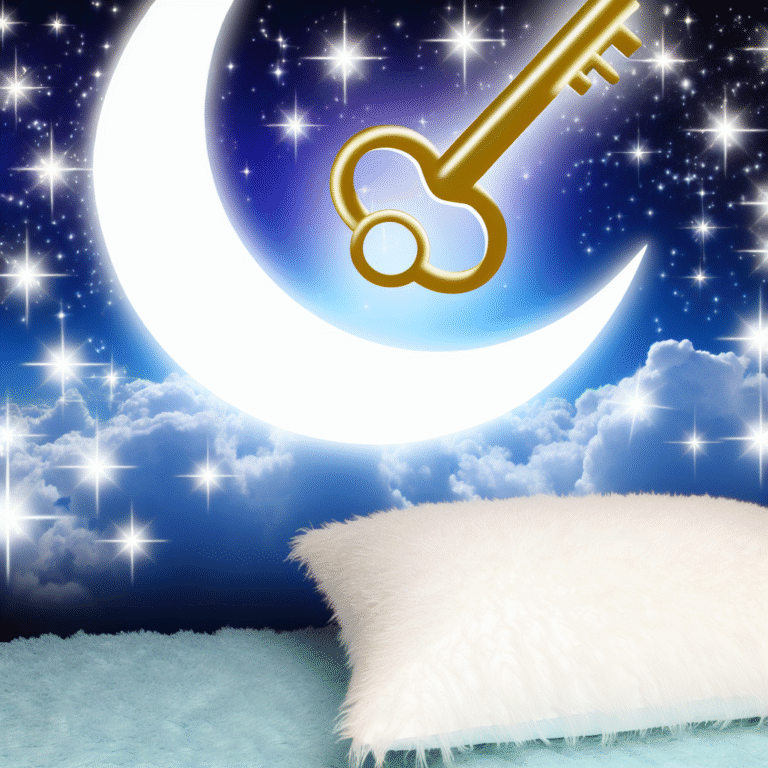
Unlock Restful Nights: Ultimate Natural Remedies to Combat Insomnia
Introduction
In today’s fast-paced world, precious sleep often becomes a casualty of our busy lifestyles. Insomnia affects millions, transforming nights into long hours of tossing and turning. The constant clock-watching can lead to stress, anxiety, and a plethora of health issues. Therefore, finding ways to unlock restful nights has never been more crucial. This article delves into top natural remedies to combat insomnia, empowering you with knowledge to reclaim your sleep and energize your life.
Why Sleep Matters
Before diving into remedies, let’s explore why sleep is vital. Sleep is not merely a passive state; it’s an essential biological process. According to the National Institutes of Health (NIH), sleep plays a critical role in cognitive function, emotional regulation, and immune health. A lack of quality sleep can lead to:
- Impaired memory and concentration
- Increased stress and anxiety levels
- A heightened risk of chronic illnesses
Understanding the risks can motivate a commitment to improve sleep hygiene, leading to overall better health and well-being.
Top Natural Remedies to Combat Insomnia
1. Herbal Allies: Nature’s Sleep Aids
Valerian Root
Often dubbed the “herb of dreams,” valerian root has been used for centuries to promote relaxation and improve sleep quality. A study published in the Journal of Clinical Sleep Medicine found that valerian significantly reduced the time it took for individuals to fall asleep.
Case Study Analysis: A 2015 study observed 40 patients experiencing insomnia. After taking valerian root consistently for four weeks, participants reported marked improvements in sleep onset and duration.
Chamomile
Harness the calming effects of chamomile tea before bed. Not only does it serve as a hot beverage, but it’s also a natural relaxant. A study in the journal BMJ Open found that participants who consumed chamomile regularly experienced improved sleep quality.
2. Melatonin: The Sleep Hormone
Melatonin supplements can help regulate your sleep-wake cycle, especially for those whose insomnia is linked to disruptions in this rhythm. Research indicates that melatonin can significantly reduce sleep onset time and enhance sleep quality in adults.
Note: It is essential to consult a healthcare provider to determine the proper dosage and timing of melatonin supplements.
3. Mindfulness and Meditation
Practicing mindfulness and meditation can significantly impact your mental state, allowing for better sleep. BY focusing on the present and eliminating anxieties, you can unwind before bedtime. Harvard Medical School cites that mindfulness reduces insomnia symptoms significantly.
Case Study Analysis: A study conducted at the University of Massachusetts found that participants who engaged in mindfulness meditation reported lower levels of insomnia and improved overall sleep quality after six months.
4. Aromatherapy: The Power of Scents
Scents play a major role in affecting our mood and relaxation levels. Essential oils, such as lavender and sandalwood, have been found to promote sleep when diffused in your bedroom.
Lavender Essential Oil: According to a study published in the Journal of Sleep Research, participants exposed to lavender oil experienced improved sleep quality and increased daytime alertness.
5. Nutrition: Eating for Sleep
What we consume can significantly affect our ability to fall asleep. Certain foods, rich in tryptophan (a precursor to melatonin), can help induce sleep.
Foods to Consider:
- Turkey
- Cherries
- Bananas
- Oatmeal
6. Physical Activity: Regular Movement
Engaging in regular physical activity can improve sleep quality and help you fall asleep faster. A meta-analysis in the journal Mental Health and Physical Activity establishes a strong connection between regular exercise and reduced insomnia symptoms.
Case Study Analysis: A study involving sedentary adults found that those who engaged in moderate aerobic exercise three times a week saw significant improvements in their overall sleep quality over 16 weeks.
7. Sleep Hygiene: Creating a Sanctuary
Creating a sleep-conducive environment is crucial. This includes ensuring:
- A dark, cool room
- Comfortable bedding
- A consistent sleep schedule
Consider establishing a bedtime routine, which signals your body that it’s time to wind down. This could involve reading, gentle stretching, or practicing relaxation techniques.
Chart: Top Natural Remedies to Combat Insomnia
| Remedy | Benefits | Suggested Use |
|---|---|---|
| Valerian Root | Reduces time to fall asleep | 300-600mg before bedtime |
| Chamomile | Calming effects, improved sleep quality | 1 cup tea 30 minutes before bed |
| Melatonin | Regulates sleep-wake cycle | 0.5-5mg 30 minutes before bed |
| Lavender Oil | Promotes relaxation, helps you fall asleep | Diffuse or apply topically before bed |
| Tryptophan-rich Foods | Enhances melatonin production | Incorporate into evening meals |
| Exercise | Improves sleep quality | Moderate activity, 3-5 times weekly |
| Mindfulness | Reduces stress and anxiety | 10-20 minutes before bed |
Conclusion
As we’ve explored, insomnia is a struggle many face, but it doesn’t have to be a lifelong battle. Through unlocking restful nights with these top natural remedies—from herbal supplements and mindful practices to lifestyle adjustments—you can reclaim the restful sleep you deserve. Investing in your sleep health is one of the best ways to enhance your overall well-being. Embrace these insights, and take actionable steps tonight, paving the way for restorative nights in the future.
FAQs
1. What is insomnia?
Insomnia is a sleep disorder characterized by difficulty falling asleep or staying asleep, which can lead to daytime fatigue and impaired functioning.
2. Can natural remedies really help with insomnia?
Yes, many individuals find that natural remedies, like herbal supplements and lifestyle changes, can effectively improve sleep quality without the side effects associated with prescription medications.
3. Are there any side effects to using melatonin?
Melatonin is generally considered safe for short-term use, but it can cause side effects in some individuals, including headaches, dizziness, or daytime drowsiness.
4. How long does it take for these remedies to work?
The effectiveness and timeframe vary from person to person; some may find immediate relief, while others may require several weeks of consistent use to see improvements.
5. Can lifestyle changes alone help with insomnia?
Absolutely. A combination of proper sleep hygiene, nutritious diet, regular physical activity, and stress management can significantly improve sleep quality.
Unlock restful nights doesn’t have to be just an aspiration; with the right tools and insights, it can become your reality. So, embark on this journey to combat insomnia naturally, and remember, a good night’s sleep is a vital step toward your best self!

















